- Skip to main menu
- Skip to user menu
This job has expired


Lecturer in Creative Writing

Job Details
Department of English
Location: Egham Salary: £47,719 per annum - including London Allowance This is the expected starting salary for this post however appointment at a higher point may be made for candidates who demonstrate exceptional skills and experience relevant to the role. Post Type: Full Time Closing Date: 23.59 hours BST on Sunday 31 March 2024 Reference: 0224-073
Full Time, Permanent
Applications are invited for the post of Lecturer in Creative Writing in the English Department, to start in the Summer Term (from 29 th April 2024)
Creative writing is expanding at RHUL. Joining the CW team at an exciting phase of ongoing development, this key appointment will teach both MA and UG level students. The primary focus of the job is poetry; experience in other forms of creative writing and the ability to teach them (non-fiction and fiction), though not a requirement, may be an advantage.
Applicants should have a proven record of high-quality publication and teaching. The successful candidate may be required to teach BA and MA courses, and to supervise MA final projects and PhD students. The appointee will be expected to participate fully in delivering the Department’s objectives, undertaking writing, teaching, and public engagement. They will also participate in departmental administration as requested by the Head of Department.
In return we offer a highly competitive rewards and benefits package including:
- Generous annual leave entitlement
- Training and Development opportunities
- Pension Scheme with generous employer contribution
- Various schemes including Cycle to Work, Season Ticket Loans and help with the cost of Eyesight testing.
- Free parking
The post is based in Bedford Square, London, with some teaching scheduled at Egham, Surrey, where the College is situated in a beautiful, leafy campus near to Windsor Great Park and within commuting distance from London.
For an informal discussion about the post, please contact Adam Roberts on [email protected] or +44 (0)1784 443511.
For queries on the application process the Human Resources Department can be contacted by email at: [email protected]
Please quote the reference: 0224-073
Closing Date: 23:59, 31 st March 2024
Interview Date: 17 th April 2024
Further details: Job Description & Person Specification
One of the UK’s leading research-intensive universities.
Royal Holloway is one of the UK’s top 20 universities, ranked 129 globally (Times Higher Education World University Rankings, 2015-16). We sit within the top 25% of UK universities for research that is rated world leading or internationally recognised and at 89%, our 2015 National Student Survey satisfaction rating is the highest of the University of London institutions.
The university has 21 academic departments and schools spanning the arts and humanities, sciences, social sciences, management, economics and law. We combine our world-class research and excellence in teaching with a global perspective, creating a close-knit community that inspires success. With some 9,000 students learning from internationally renowned academics and researchers, ours is a unique culture, where our students and colleagues feel recognised as individuals. We have a unique best-of-both-worlds location; a safe, leafy campus in Egham, Surrey, less than 40 minutes by train from central London and just seven miles from Heathrow airport, creating the environment where our community thrives.
Share this job
Get job alerts
Create a job alert and receive personalised job recommendations straight to your inbox.
Before you apply - Turn on alerts for jobs like this!
We'll send them straight to your inbox :
When you create this job alert we will email you a selection of jobs matching your criteria. Our terms and conditions and privacy policy apply to this service and you can unsubscribe at any time.
By clicking to continue to apply below, your email address will be shared with the employer.
Lecturer / Senior Lecturer in Creative Writing for Marketing - 15660
Brunel university london - department of arts & humanities.
Location: Brunel University London , Uxbridge Campus
Lecturer Salary: Grade 8 from: £44 , 240 to £56 , 903 inclusive of London Weighting with potential to progress to £63 , 706 per annum , inclusive of London Weighting , through sustained exceptional contribution .
Senior Lecturer Salary: Grade 10 from £61 , 929 to £67 , 422 inclusive of London Weighting with potential to progress to £71 , 365 per annum , inclusive of London Weighting , through sustained exceptional contribution.
Hours: 0.5 FTE Contract Type: Fixed Term - 2 years
Brunel University London was established in 1966 and is a leading multidisciplinary research-intensive technology university delivering economic, social and cultural benefits. For more information please visit: https://www.brunel.ac.uk/about/our-history/home .
Creative Writing at Brunel is part of the Division of English and Creative Writing, which prides itself on excellence in teaching and research. In September 2024, in collaboration with Brunel Business School, we will launch an innovative new MSc in Creative Writing for Marketing. We are looking to recruit a Lecturer or Senior Lecturer in Creative Writing for Marketing to cement our reputation for teaching excellence.
The successful candidate will teach primarily on this exciting new programme but may also be required to contribute to teaching in Creative Writing on our other undergraduate and postgraduate programmes. The individual will teach and lead modules on the new programme, including the core module Creative Writing for Marketing, and the optional module Creative Copywriting. The post holder will also contribute to admissions and recruitment on the new programme, working closely with the Programme Lead.
The successful applicant will be appointed on an Academic Education contract. Candidates should be able to demonstrate leadership in pedagogic practice and delivery and evidence a track record of Creative Writing / Marketing teaching, good interpersonal and relationship-building skills, together with high standards of professionalism. Professional experience in the field of marketing (particularly in the Creative Industries) would be an advantage.
For informal discussions, please contact Jessica Cox (Division Lead for English and Creative Writing): [email protected] .
We offer a generous annual leave package plus discretionary University closure days, excellent training and development opportunities as well as a great occupational pension scheme and a range of health-related support. The University is committed to a hybrid working approach.
Closing date for applications: Monday , 8 April 2024 (23:59pm)
For further details about the post including the Job Description and Person Specification and to apply please click the 'Apply' button.
If you have any technical issues please contact us at: [email protected] .
All Applicants should be eligible to live and work in the UK.
Brunel University wishes to promote an inclusive and diverse workforce and create a culture that values the contribution of all backgrounds and communities. All employees will be recruited , selected and appointed in line with our equality and diversity policy.
Advert information
Type / Role:
Subject Area(s):
Location(s):
PhD Alert Created
Job alert created.
Your PhD alert has been successfully created for this search.
Your job alert has been successfully created for this search.
Account Verification Missing
In order to create multiple job alerts, you must first verify your email address to complete your account creation
jobs.ac.uk Account Required
In order to create multiple alerts, you must create a jobs.ac.uk jobseeker account
Alert Creation Failed
Unfortunately, your account is currently blocked. Please login to unblock your account.
Email Address Blocked
We received a delivery failure message when attempting to send you an email and therefore your email address has been blocked. You will not receive job alerts until your email address is unblocked. To do so, please choose from one of the two options below.
Max Alerts Reached
A maximum of 5 Job Alerts can be created against your account. Please remove an existing alert in order to create this new Job Alert
Creation Failed
Unfortunately, your alert was not created at this time. Please try again.
Create PhD Alert
Create job alert.
When you create this PhD alert we will email you a selection of PhDs matching your criteria. When you create this job alert we will email you a selection of jobs matching your criteria. Our Terms and Conditions and Privacy Policy apply to this service. Any personal data you provide in setting up this alert is processed in accordance with our Privacy Notice
Max Saved Jobs Reached
A maximum of 500 Saved Jobs can be created against your account. Please remove an existing Saved Job in order to add a new Saved Job.
Please sign in or register for an account to save a job.
More jobs from Brunel University London
PhD Studentship: Fully funded studentship in Plastivore Plasticity
Funding for the Executive Dean’s PhD Studentship in Experience-Based Co-Design for Effective Physical Activity Interventions With Working Age Adults Living With Multiple Long-Term Conditions
Technician / Senior Technician (Health Sciences) - 10629
Research Assistant/Research Fellow - 15669
Attendance Monitoring Technical Support and Development Engineer - 15680
PhD Studentship: Prediction of Treatment of Mentally-Disordered Offenders
Show all jobs for this employer …
More jobs like this
Support Technician: Media Lab
Professor and Director of the Science and Technology in Archaeology Research Centre
Film School Lead
Professor in Sustainable Fashion & Textiles
Fixed-Term Lectureship in Philosophy (Part-time)
Join in and follow us

Copyright © jobs.ac.uk 1998 - 2024
- Career Advice
- Jobs by Email
- Advertise a Job
- Terms of use
- Privacy Policy
- Cookie Policy
- Accessibility Statement
Browser Upgrade Recommended
For the best user experience, we recommend viewing jobs.ac.uk on one of the following:

JavaScript seems to be disabled in your browser. For the best experience on our site, be sure to turn on Javascript in your browser.
Help Centre
- History, culture & writing
- Introductory and general creative writing courses
Creative Writing Courses Online & in London
Learn from published authors in a relaxed and safe environment!
Fancy trying your hand at creative writing? Or are you looking to take your passion for writing to the next level? Find your inspiration to write at the college where Andrea Levy, Malorie Blackman, Anna Burns, and other celebrated authors studied.
Learn the art of creative writing from published writers in a range of courses designed to support and encourage your creativity. You'll explore your own potential, discover a range of literary forms and techniques, and develop your writing skills. Our courses will help you grow your confidence and passion for writing, while motivating you to achieve your personal goals.
Workshops available both online and in-person
To help you fit your studies around your busy life, you have the freedom to either learn online in the comfort of your own home, or in a classroom setting from our Central London location. Whatever your preference, you'll be able to meet fellow learners, interact, share, and learn in a way that motivates and inspires you. For more information about our live online courses, please see our guide to online learning .
Choosing a level that's right for you – beginner to advanced level
Whether you're completely new to creative writing, have some previous experience, or you're writing at the professional level, we have courses that can support your needs. Our goal is to provide a supportive space in which you feel empowered to experiment, express your ideas, and challenge yourself to write creatively to a level that feels right for you.
Find your voice and nurture your creativity
On our courses, you'll receive guidance on how to give and receive constructive feedback on written work, and learn how to use that feedback to improve your writing. You'll share ideas and sharpen your critical thinking skills through close analysis of peer and published work, as well as growing your vocabulary, your communication skills, and your knowledge of the mechanics of writing.
For the latest news, courses, events and competitions, stay in touch with the Department on Facebook and Twitter .
- Online courses
- Classroom courses (London)
- Introductory and general creative writing courses 23 courses
- Professional development courses for writers 2 courses
- Creative writing taster courses 3 courses
- Craft focus courses for creative writers 2 courses
- Genre writing courses 4 courses
- 'Ways into' courses 3 courses
- Available courses 23 items
- Started: last chance to book 3 items
- No longer available 2 items
- Beginners 21 items
- Some experience 18 items
- Advanced 13 items
- Suitable for all 13 items
- Keeley Street 11 items
- Online 18 items
- Apr 2024 10 items
- May 2024 7 items
- Jun 2024 5 items
- Jul 2024 3 items
- Aug 2024 1 item
- Sep 2024 8 items
- Oct 2024 6 items
- Nov 2024 2 items
- Dec 2024 2 items
- Jan 2025 6 items
- Feb 2025 4 items
- Mar 2025 4 items
- Mon 8 items
- Tue 7 items
- Tue+Thu 1 item
- Wed 6 items
- Wed+Fri 1 item
- Thu 5 items
- Fri 4 items
- Sat 6 items
- Sun 9 items
- Weekday 13 items
- Weekend 14 items
- Daytime 18 items
- Evening 11 items
- £0.00 - £50.00 4 items
- £50.00 - £100.00 10 items
- £100.00 - £150.00 6 items
- £150.00 - £200.00 1 item
- £200.00 - £250.00 2 items
- 1 to 4 weeks 3 items
- 11 weeks or longer 4 items
- 5-10 weeks 6 items
- One-off only 13 items
Discover Art History
- What is beauty in art?
- Museum Stories
- Meet the Team: Sarah Jaffray, Art History Coordinator
Discover Writing
- Tutor accomplishments: Writing
- Student successes: Writing
- How to get published
- How to write a children’s book
Discover History
- Democracy: past(s), present(s) and future(s)
- What is history?
- Black History Month in Britain
- Political awareness vs. political understanding
- Could Donald Trump make a presidential comeback?
Discover Literature
- Reading poetry is for everyone
- Meet the Team: Sophie Oxenham, Head of Culture & Humanities
Discover Film & Cultural Studies
- City Lit Film: Cultureplex Ciné-Club
- Beyond Hollywood: An introduction to World Cinema
- Being Human: Culture and Identity now
Discover Science & Philosophy
- Reasons to love Science & Nature
- Why study philosophy?
Items 1 - 15 of 23
- You're currently reading page 1
- Page Proceed to payment
Location on this date: Keeley Street
Location on this date: Online

Can't see a course you want?
Add this category to your waiting list to set up alerts and we will update you when new courses are released online.
Creative Writing Research PhD
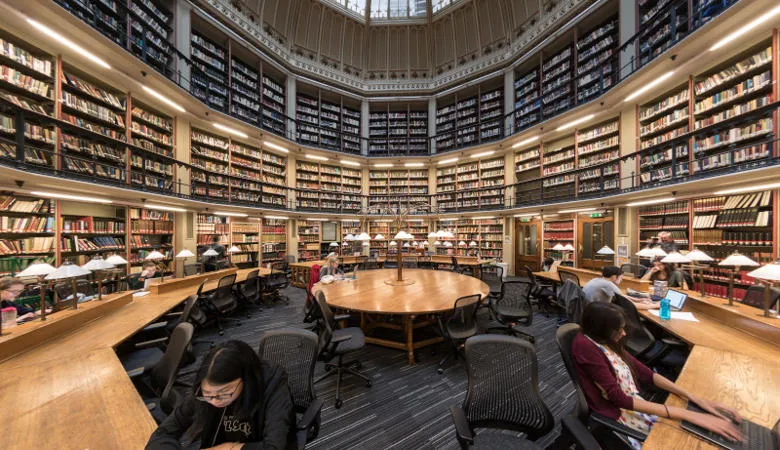
Key information
The PhD in Creative Writing at King’s is a practice-led course, incorporating taught elements and aspects of professional development. It is designed to cater for talented, committed writers who are looking to complete a book-length creative work for publication and sustain a long-term career in writing.
Key Benefits
Our unique programme offers students:
- a varied, structured framework for the development of their creative work, with regular feedback from experienced author-lecturers in the department through supervision and workshops
- purposeful engagement with professionals from the publishing and performance industries throughout the course, building potential routes to publication
- valuable teaching experience in creative writing at HE-level through our Graduate Teaching Assistantship scheme
- practical experience in public engagement, through curating and chairing public literary events at King’s
- a community of fellow writers and collaborative projects
English Department
We have over 100 doctoral students from all over the world working on a wide range of projects. Together with our community of postdoctoral fellows, our early career researchers both organise and participate in our thriving seminar and conference culture.
The English department is home to award-winning novelists, poets, essayists, biographers, non-fiction authors, and literary critics, who supervise creative projects at doctoral level within their specialisms.
Works by our staff have won or been shortlisted for a number of literary accolades, including: the T.S. Eliot Prize, the Forward Prize, the Man Booker Prize, the Sunday Times Young Writer of the Year, the Costa First Novel Award, the Costa Poetry Award, the Somerset Maugham Award, the Commonwealth Book Prize, the Biographers’ Club / Slightly Foxed First Biography Prize, the U.S. National Book Critics Circle Award, the CWA Gold Dagger Award, the European Union Prize for Literature, the RSL Encore Award, the Los Angeles Times Book Award, the E.M. Forster Award from the American Academy of Letters, le Prix du Roman Fnac, le Prix du Roman Etranger, the Kiriyama Prize, the Republic of Consciousness Prize, the Royal Society of Literature’s Encore Award, and the OCM Bocas Prize for Caribbean Literature. Many of the creative writing staff are Fellows of the Royal Society of Literature.
Their most recent publications are:
Benjamin Wood
The Young Accomplice (Penguin Viking, 2022) – fiction
A Station on the Path to Somewhere Better (Scribner, 2018) – fiction
Edmund Gordon
The Invention of Angela Carter (Chatto & Windus, 2016) – creative non-fiction
Loop of Jade (Chatto & Windus, 2015) – poetry
Anthony Joseph
Sonnets for Albert (Bloomsbury Publishing, 2022) – poetry
The Frequency of Magic (Peepal Tree Press, 2019) – fiction
Lara Feigel
The Group (John Murray Press, 2020) – fiction
Free Woman: Life, Liberation and Doris Lessing (Bloomsbury, 2018) – creative non-fiction
Homing: On Pigeons, Dwellings, and Why We Return (John Murray Press, 2019) – creative non-fiction
Daughters of the Labyrinth (Corsair, 2021) – fiction
Beethoven Variations: Poems on a Life (Chatto & Windus, 2020) – poetry
Emerald (Chatto & Windus, 2018) – poetry
Andrew O'Hagan
Mayflies (Faber & Faber, 2020) – fiction
The Secret Life: Three True Stories (Faber & Faber, 2017) – creative non-fiction
*may vary according to research leave and availability.
King's Alumni
The list of King’s alumni not only features many acclaimed contemporary authors—Michael Morpurgo, Alain de Botton, Hanif Kureishi, Marina Lewycka, Susan Hill, Lawrence Norfolk, Ross Raisin, Alexander Masters, Anita Brookner, and Helen Cresswell—it also includes major figures in literature, such as Maureen Duffy, Arthur C Clarke, Thomas Hardy, Christopher Isherwood, BS Johnson, John Keats, W. Somerset Maugham, and Virginia Woolf.
Course Detail
Our postgraduate writing students are given a supportive environment in which to enhance their technique, to explore the depths of their ideas, to sustain their creative motivation, and to prepare them for the demands of the writer’s life beyond the College.
At King's we know that writing well requires self-discipline and an ability to work productively in isolation; but we also appreciate that postgraduate writers thrive when they are part of a community of fellow authors, an environment of constructive criticism and shared endeavour.
That is why we offer our PhD students the guidance of knowledgeable and experienced practitioners. They will have frequent opportunities to interact and collaborate with peers and forge lasting connections within London’s writing industry.
Students will be expected to attend the quarterly Thesis Workshop, and also to take an active part in curating literary events at King’s, including the Poetry And… quarterly reading series. They will be invited to apply for positions teaching undergraduate creative writing modules as part of the Department’s Graduate Teaching Assistantship (GTA) scheme.
After three years (full-time) or six years (part-time), students are expected to submit either:
- a novel or short story collection
- a poetry collection
- a full-length work of creative non-fiction
In addition, they are also required to submit an essay (up to 15,000 words) that examines their practical approach to the conception, development, and revision of their project, and which explores how their creative work was informed by research (archival, book-based, or experiential).
- How to apply
- Fees or Funding
Many of our incoming students apply for AHRC funding via the London Arts and Humanities Partnership. Please see their website ( www.lahp.ac.uk ) for more detail of deadlines, application procedure and awards available. Also the ‘Student Funding’ section of the Prospectus will give you more information on other scholarships available from King’s.
UK Tuition Fees 2023/24
Full time tuition fees:
£5,820 per year (MPhil/PhD, Creative Writing)
Part time tuition fees:
£2,910 per year (MPhil/PhD, Creative Writing)
International Tuition Fees 2023/24
£22,900 per year (MPhil/PhD, Creative Writing)
£11,450 per year (MPhil/PhD, Creative Writing)
UK Tuition Fees 2024/25
£6,168 per year (MPhil/PhD, Creative Writing)
£3,084 per year (MPhil/PhD, Creative Writing)
International Tuition Fees 2024/25
£24,786 per year (MPhil/PhD, Creative Writing)
£12,393 per year (MPhil/PhD, Creative Writing)
These tuition fees may be subject to additional increases in subsequent years of study, in line with King’s terms and conditions.
- Study environment
Base campus

Strand Campus
Located on the north bank of the River Thames, the Strand Campus houses King's College London's arts and sciences faculties.
PhD in Creative Writing students are taught through one-to-one sessions with an appointed supervisor in their chosen specialism (fiction, creative non-fiction, or poetry) as well as through quarterly thesis workshops. They are also appointed a second supervisor whose role is to offer an additional perspective on the work being produced.
We place great emphasis on pastoral care and are a friendly and welcoming department in the heart of London. Our home in the Virginia Woolf Building offers many spaces for postgraduate students to work and socialise. Studying in London means students have access to a huge range of libraries from the Maughan Library at King’s to the Senate House Library at the University of London and the British Library.
Our PhD Creative Writing students are taught exclusively by practicing, published writers of international reputation. These include:
Benjamin Wood (Senior Lecturer in Creative Writing)
Supervises projects in fiction.
Edmund Gordon (Senior Lecturer in Creative Writing)
Supervises projects in fiction and creative non-fiction.
Sarah Howe (Lecturer in Poetry)
Supervises projects in poetry.
Anthony Joseph (Lecturer in Creative Writing)
Supervises projects in poetry and fiction.
Jon Day (Senior Lecturer in English)
Supervises projects in creative non-fiction and fiction
Lara Feigel (Professor of Modern Literature)
Supervises projects in creative non-fiction and fiction.
Ruth Padel (Professor Emerita of Poetry)
Andrew O’Hagan (Visiting Professor)
*Teaching staff may vary according to research leave and availability.
Our programme also incorporates the following taught components:
Thesis Workshop
A termly writing seminar for the discussion and appraisal of works-in-progress. These are taught on a rotational basis by all members of the creative writing staff, so that students get the benefit of hearing a range of voices and opinions on their work throughout the course.
The Writing Life
A suite of exclusive guest talks and masterclasses from leading authors, publishers, and editors, in which students receive guidance from people working at the top level of the writing industry and learn about the various demands of maintaining a career as a writer.
Recent speakers have included Amit Chaudhuri, Chris Power, Rebecca Watson, Mendez, Frances Leviston, Joanna Biggs, Joe Dunthorne, Francesca Wade, Kishani Widyaratna, Jacques Testard and Leo Robson.
Other elements of professional development are included in the degree:
Agents-in-Residence
Candidates in fiction or creative-nonfiction will meet and discuss their work in one-to-one sessions with invited literary agents, who are appointed to yearly residencies. These sessions offer writers a different overview of the development of their project: not solely from the standpoint of authorial technique, but with a view towards the positioning of their writing within a competitive and selective industry. Poetry candidates will meet and discuss their work with invited editors from internationally recognised poetry journals and presses.
Undergraduate Teaching
Through our Graduate Teaching Assistant (GTA) training scheme, our PhD students can apply to lead undergraduate creative writing workshops in fiction, creative non-fiction, and/or poetry, enabling them to acquire valuable HE-level teaching experience that will benefit them long after graduation.
Reading Series
Our students are required to participate in the curation of literary events at King’s. They are also responsible for curating Poetry And… , a quarterly reading in which leading poets illuminate the powerful connections between poetry and other disciplines. Students will develop skills in public engagement by chairing discussions and may also perform excerpts of their own writing.
Postgraduate Training
There is a range of induction events and training provided for students by the Centre for Doctoral Studies, the Faculty of Arts and Humanities and the English Department. A significant number of our students are AHRC-funded through the London Arts and Humanities Partnership (LAHP) which also provides doctoral training to all students. All students take the ‘Doctoral Seminar’ in their first year. This is a series of informal, staff-led seminars on research skills in which students can share and gain feedback on their own work. We run a series of ‘Skills Lunches’, which are informal lunch meetings with staff, covering specific topics, including Upgrading, Attending Conferences, Applying for Funding and Post-Doctoral Awards, etc. Topics for these sessions are generally suggested by the students themselves, so are particularly responsive to student needs. We have an Early Career Staff Mentor who runs more formal workshops of varying kinds, particularly connected to career development and the professions.
Through our Graduate Teaching Assistantship Scheme, doctoral students can apply to teach in the department (usually in their second year of study) and are trained and supported as they do so.
- Entry requirements

Find a supervisor
Search through a list of available supervisors.

Accommodation
Discover your accommodation options and explore our residences.

Connect with a King’s Advisor
Want to know more about studying at King's? We're here to help.

Learning in London
King's is right in the heart of the capital.
Suggestions in Courses
Suggestions in news.
- No suggestions found.
Suggestions in Events
English literature and creative writing.
Our Creative Writing and English Literature programmes cover contemporary and historical literature from Romantic poetry and Victorian novels to children’s literature, performance poetry, science fiction, and page-to-screen adaptations. Our students learn about literature and other art-forms, national and international culture and politics, and the relationship between literature, publishing and technology, philosophy and religion, and environment and place.
Over the course of their degree students take modules including Poetic Form and Genre, Theatre and Performance, Publishing and the Book, Writing and Editing Fiction and Nonfiction, Genre Fiction, Victorians to Moderns, Why Literature Matters and The Writer's Craft. Students also specialise in a final year dissertation.
In a dedicated year-long module on the publishing industry we invite celebrated writers and guest speakers from major publishing institutions to help students understand the process of taking a manuscript from author to printed book and beyond into prize structures, rights fairs and literary festivals. Our aim is for students to graduate with a confident sense of how the publishing industry works and a clear idea of where in the industry they might want to work.
Central to everything we do is a love of literature and a thorough and wide-ranging critical and practical discussion of what it means to be a reader and writer today, in the UK and elsewhere in the world. Seminars and workshops are tutor-led opportunities where students learn to present their creative and critical work, to offer and receive feedback, and develop creative, intellectual and technical skills. Workshops and seminar discussions form an essential part of developing creative practice. Degree study in our areas typically consists of lectures and discussion seminars, mixed with student presentations and opportunities to work on critical or creative assignments and projects.
Our modules focus not only on individual creative practice and critical skills but on a lively intellectual engagement with literary history, theory and contemporary production. Students learn to place their creative output in context and actively engage with wider debates about publishing and the place of literature in today’s world.
We also help students develop the technical aspects of writing - editing, grammar, punctuation - in a shame-free environment, enabling them to write fluently and confidently in a variety of genres, including creative nonfiction, and to deepen their understanding of different cultural and literary forms.
Over the course of the year students visit London’s many thriving cultural venues, such as Tate Britain and Tate Modern, The Globe Theatre, the Victoria & Albert Museum of Childhood, and Poetry Unplugged at the Poetry Cafe.
The Anthology project
Creative Writing and English Literature moved into the School of Art, Architecture and Design in 2016/17, and we began collaborating with the tutors and students on the Design, Illustration and Publishing degrees. It was an inspiring process to see the critical and creative work of our students emerge in a shared project like the Anthology book. The design students’ brilliant creative responses gave our students’ writing a beautiful new form. We collaborate on producing a book of design and writing students’ work for the School's annual summer show.
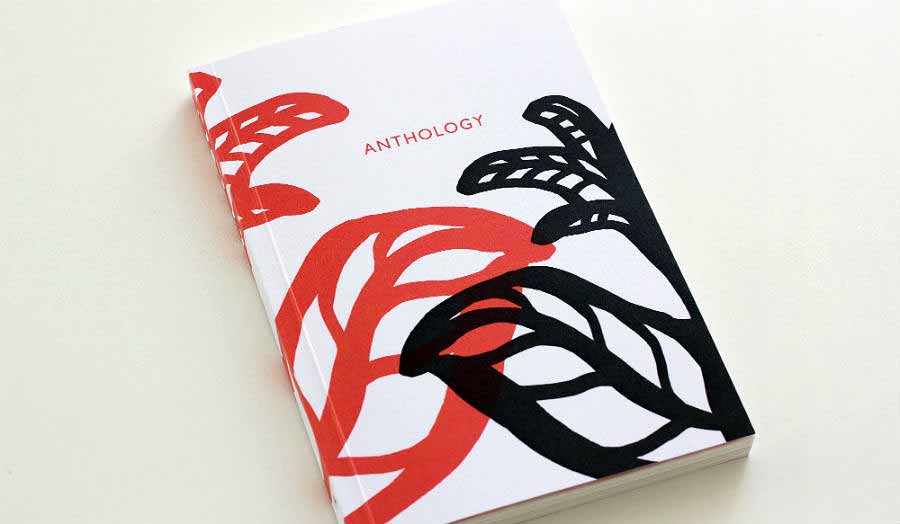
Undergraduate
Creative Writing and English Literature (including foundation year) - BA (Hons) Creative Writing and English Literature - BA (Hons)
Postgraduate
Creative, Digital and Professional Writing - MA
English literature and creative writing - undergraduate courses.

Creative Writing and English Literature (including foundation year) - BA (Hons)
London Met's Creative Writing and English Literature degree course with foundation year is the perfect starting point for a career in the creative industries. Apply now.
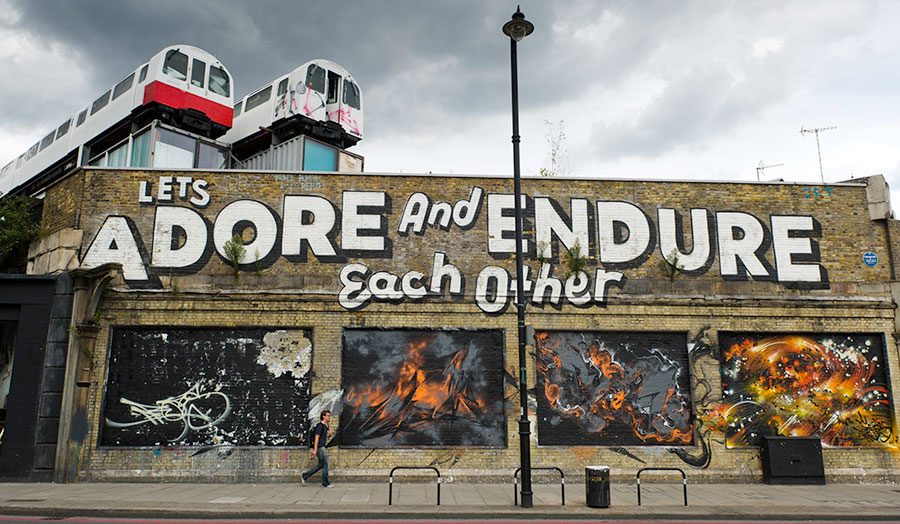
Creative Writing and English Literature - BA (Hons)
This BA degree course in Creative Writing and English Literature enhances your writing skills through the study of literary genres. Apply to London Met now.
English Literature and Creative Writing - Postgraduate courses

Learn from leading writing professionals and gain valuable industry experience on our Creative, Digital and Professional Writing MA.

7 June - 13 July 2018
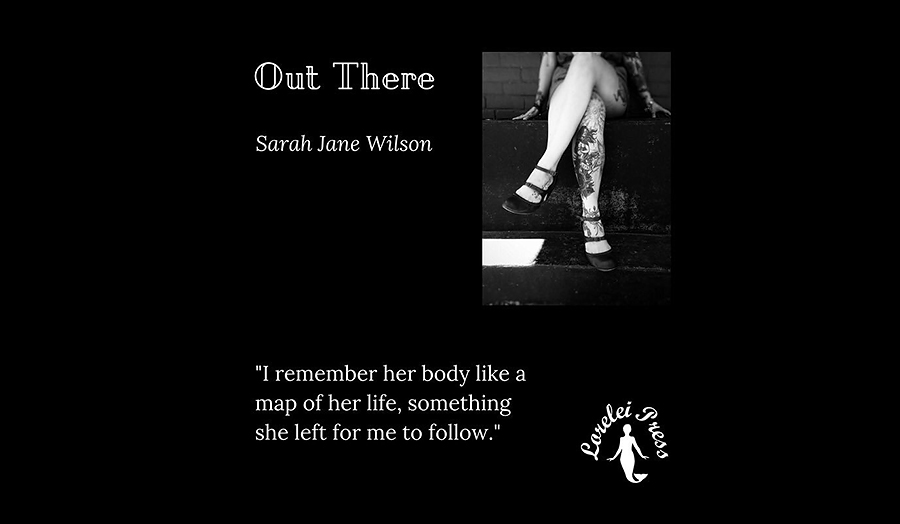
Andrew Cutting
Senior Lecturer in Creative Writing and English Literature
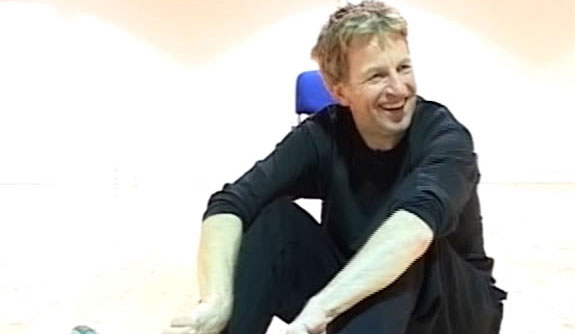
Jon Davison
Visiting Lecturer in Theatre Arts
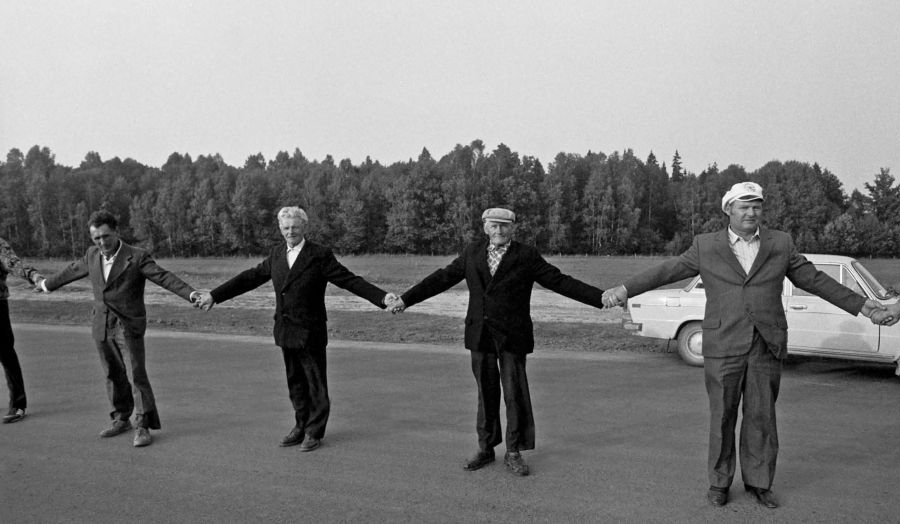
Senior Lecturer in Theatre Arts
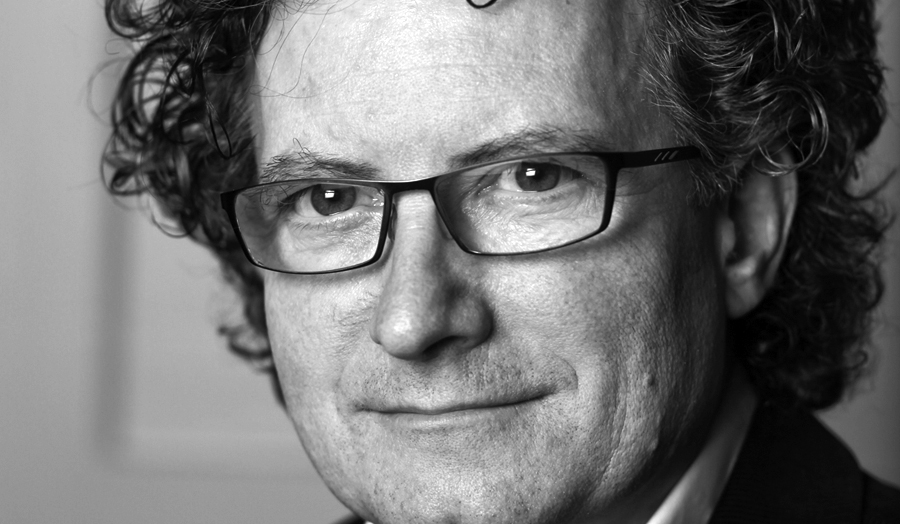
Dr Tony Murray
Senior Lecturer in Creative Writing
Trevor Norris
.jpg)
Tory Sandars
Lecturer in Theatre Arts
.jpg)
Dr Jacek Ludwig Scarso
Reader in Art and Performance
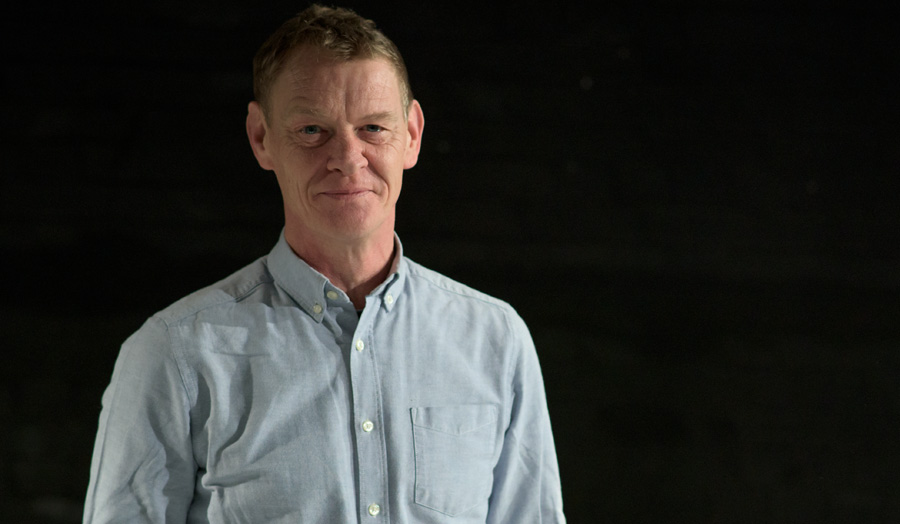
Andrew Siddall
Senior Lecturer in Interiors and Theatre Arts

Sinead Keegan
Lecturer in Creative Writing and English Literature
.png)
Sunny Singh
Professor of Creative Writing and Inclusion in the Arts

Prof. Rishi Trikha
Associate Professor
.jpg)
Dr Louise Tucker
Lecturer in Creative Writing and Short Course Tutor
.jpg)
Jane Turner

Dr Richard Whitby
Subject areas.
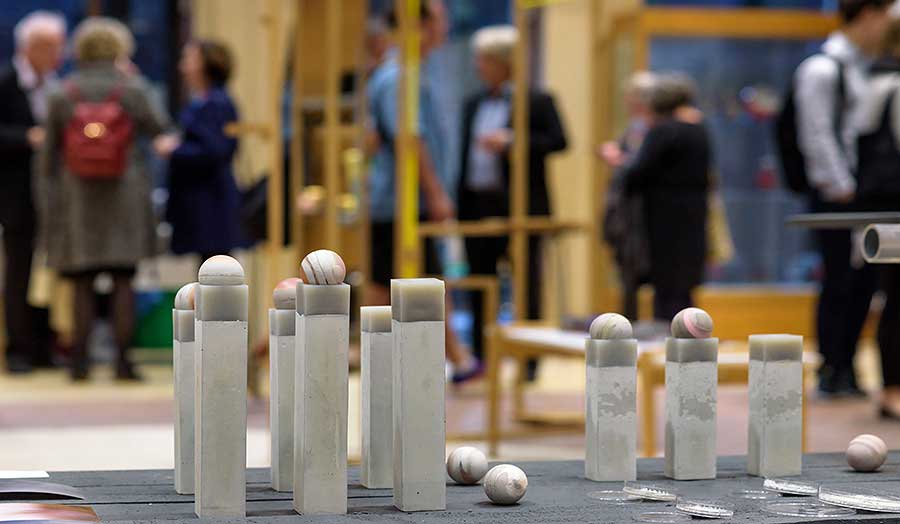
News from the school
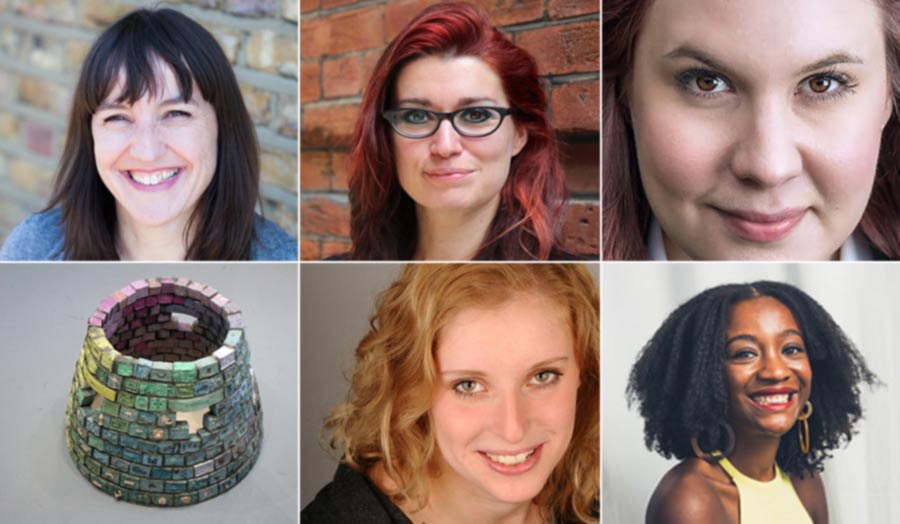

Creating Childhood
27 November 6pm
Public panel event as part of Making a Living Week explores what – and how – we create for children.
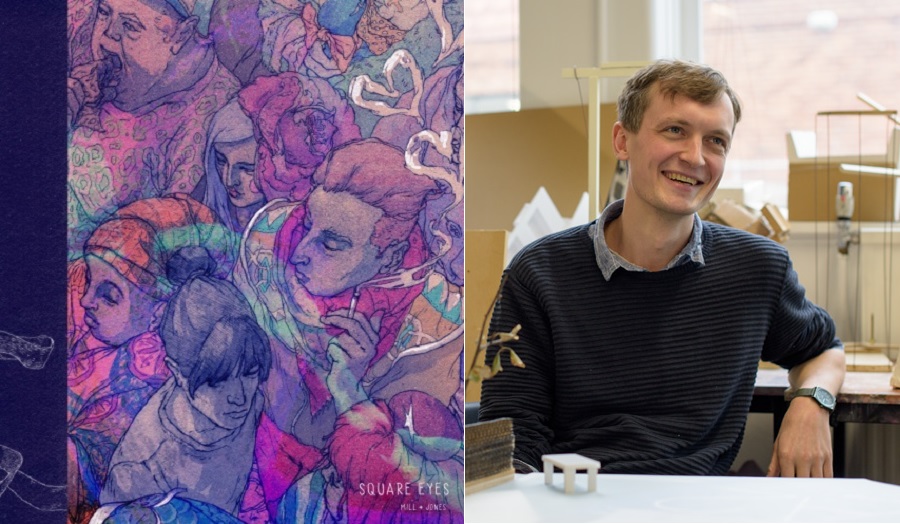
Square Eyes
Graphic novel co-authored by The Cass foundation lecturer Luke Jones and architecture tutor Anna Mill will be published by Jonathan Cape.
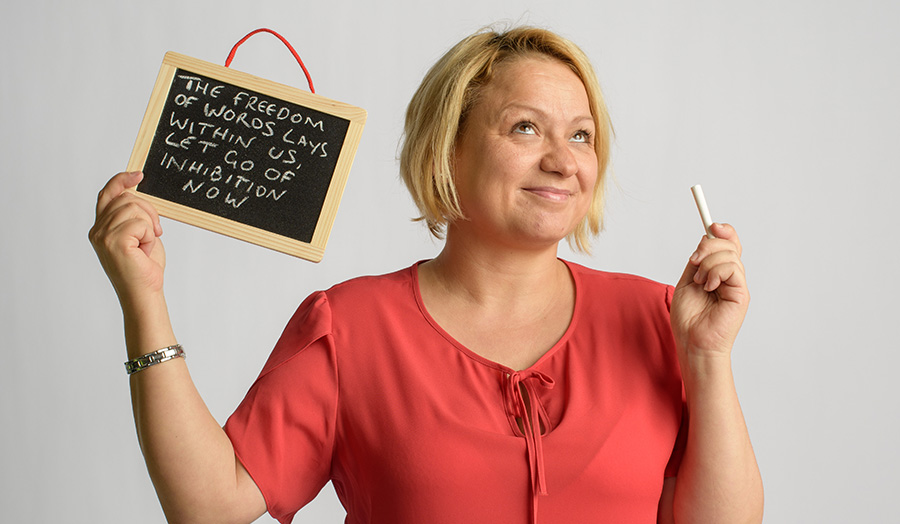
Being recognised for exceptional commitment to adult education
Oriana White, a mature student at London Metropolitan University, has been Highly Commended in the Festival of Learning, the biggest celebration of lifelong learning in England.

London Met graduate releases debut novel
Cass alumna Laura Nunziante releases novel Salute!
- Find a course
- Undergraduate study
- Postgraduate study
- MPhil/PhD research
- Short courses
- Entry requirements
- Financial support
How to apply
- Come and meet us
- Evening study explained
- International Students
- Student Services
- Business Services
- Student life at Birkbeck
- The Birkbeck Experience
- Boost your career
- About Birkbeck
- Contact Birkbeck
- Faculties and Schools
- ReciteMe accessibility
Creative Writing
Application options include:
Course Overview
The BA Creative Writing is an exciting programme of study that gives you the opportunity to explore a range of disciplines, from fiction to poetry, scriptwriting to creative non-fiction.
You will be taught by some of the UK’s leading writers, including playwright David Eldridge ( Beginning ) and screenwriter Daragh Carville ( The Bay ). Under the guidance of these and other practising, award-winning writers, you will:
- build an understanding of the craft of writing
- hone your authorial technique
- learn the vital skills of reading as a writer.
Through practical projects and engagement with visiting professionals, you will broaden your understanding of the many aspects of the writing industry. You will also complete an extended creative project in a specific genre in your final year.
This creative writing course provides you with a basis of skills necessary to pursue writing as a profession. It also equips you with expertise transferable to many careers in the arts, education and the media. And you will be studying right in the heart of literary London, walking in the footsteps of Virginia Woolf and the Bloomsbury Group.
If you opt for the Foundation Year route, this will fully prepare you for undergraduate study. It is ideal if you are returning to study after a gap, or if you have not previously studied the relevant subjects, or if you didn't achieve the grades you need for a place on your chosen undergraduate degree.
Discover the career opportunities available by taking Creative Writing (BA (Hons)).
Key information and modules
Creative writing ba (hons): 3 years full-time, on campus, starting october 2024.
Central London
Creative Writing BA (Hons): 4 years part-time, on campus, starting October 2024
Creative writing with foundation year ba (hons): 4 years full-time, on campus, starting october 2024, creative writing with foundation year ba (hons): 6 years part-time, on campus, starting october 2024, creative writing ba (hons): 3 years full-time, on campus, starting october 2025, creative writing ba (hons): 4 years part-time, on campus, starting october 2025.
Applications open in October 2024
Creative Writing with Foundation Year BA (Hons): 4 years full-time, on campus, starting October 2025
Creative writing with foundation year ba (hons): 6 years part-time, on campus, starting october 2025.
Find another course:
- Birkbeck was ranked 2nd in the UK for its English Language and Literature research in the 2021 Research Excellence Framework.
- You will be eligible to submit work to the annual Birkbeck creative writing journal, The Mechanics’ Institute Review . Read an account of how our students created the most recent issue of The Mechanics' Institute Review .
- Birkbeck is located in the heart of literary London, in Bloomsbury, WC1. You could be studying in a building that was once home to Virginia Woolf and frequented by members of the Bloomsbury Group. The building houses our own creative hub which includes the Peltz Gallery , the Gordon Square Cinema and a theatre and performance space .
Birkbeck makes all reasonable efforts to deliver educational services, modules and programmes of study as described on our website. In the event that there are material changes to our offering (for example, due to matters beyond our control), we will update applicant and student facing information as quickly as possible and offer alternatives to applicants, offer-holders and current students.
Entry Requirements
We welcome applicants without traditional entry qualifications as we base decisions on our own assessment of qualifications, knowledge and previous work experience. We may waive formal entry requirements based on judgement of academic potential.
All applicants, whatever their academic background, must submit a sample of 1000 words of creative writing (fiction, poetry, drama, or screenwriting).
For part-time courses, standard requirements are a minimum of two A-levels or equivalent.
UCAS tariff points
- 3 years full-time: 96-128 points (e.g. A-levels CCC-ABB)
- 4 years full-time with Foundation Year: 48 points
The UCAS tariff score is applicable to you if you have recently studied a qualification that has a UCAS tariff equivalence. UCAS provides a tariff calculator for you to work out what your qualification is worth within the UCAS tariff.
Foundation year degrees
Our 'with Foundation Year' route is designed to give you extra support as it provides you with an additional year (full-time) or two years (part-time) of supported study. This is an ideal route if you are returning to study after a gap, or if you have not previously studied this subject, or if you did not achieve the grades you need for a place on this degree.
Once you successfully complete your Foundation Year studies, you will automatically advance onto the main degree.
Alternative entry routes
3 years full-time and 4 years part-time: Access to Higher Education Diploma with a minimum of 15 credits achieved at Merit or Distinction in the subject area, although we may waive these formal entry requirements and make our own assessment based on the creative writing sample.
English language requirements
If English is not your first language or you have not previously studied in English, our usual requirement is the equivalent of an International English Language Testing System (IELTS Academic Test) score of 6.5, with not less than 6.0 in each of the sub-tests. We also accept other English language tests .
If you don’t meet the minimum English language requirements, please contact us or see our international study skills page for more details of how we can help.
Visit the International section of our website to find out more about our English language entry requirements and relevant requirements by country .
Visa and funding requirements
If you are not from the UK and you do not already have residency here, you may need to apply for a visa.
The visa you apply for varies according to the length of your course:
- Courses of more than six months' duration: Student visa
- Courses of less than six months' duration: Standard Visitor visa
International students who require a Student visa should apply for our full-time courses as these qualify for Student visa sponsorship. If you are living in the UK on a Student visa, you will not be eligible to enrol as a student on Birkbeck's part-time courses (with the exception of some modules).
For full information, read our visa information for international students page .
Please also visit the international section of our website to find out more about relevant visa and funding requirements by country .
Please note students receiving US Federal Aid are only able to apply for in-person, on-campus programmes which will have no elements of online study.
Credits and accredited prior learning (APL)
If you have studied at university (or have an HND or Foundation Degree), you may have accumulated credits through the modules you studied. It may be possible to transfer these credits from your previous study to Birkbeck or another institution.
Creative Writing BA (Hons): 4 years part-time, on campus, starting in academic year 2024-25 or 2025-26
Academic year 2024–25, starting october 2024.
Part-time home students: £6,935 per year Part-time international students : £13,215 per year
Academic year 2025–26, starting October 2025
To be confirmed
Creative Writing BA (Hons): 3 years full-time, on campus, starting in academic year 2024-25 or 2025-26
Full-time home students: £9,250 per year Full-time international students: £17,620 per year
Creative Writing with Foundation Year BA (Hons): 4 years full-time, on campus, starting in academic year 2024-25 or 2025-26
Creative writing with foundation year ba (hons): 6 years part-time, on campus, starting in academic year 2024-25 or 2025-26.
Part-time home students, Year 1&2: £4,625 per year Part-time international students , Year 1&2: £8,810 per year Part-time home students, Year 3+: £6,935 per year Part-time international students , Year 3+: £12,615 per year
Students are charged a tuition fee in each year of their course. Tuition fees for students continuing on their course in following years may be subject to annual inflationary increases. For more information, please see the College Fees Policy .
If you’ve studied at Birkbeck before and successfully completed an award with us, take advantage of our Lifelong Learning Guarantee to gain a discount on the tuition fee of this course.
Tuition fee and maintenance loans
Eligible full-time and part-time students from the UK don’t have to pay any tuition fees upfront, as government loans are available to cover them.
Maintenance loans are also available for eligible full-time and part-time UK students, to assist with covering living costs, such as accommodation, food, travel, books and study materials. The amount you receive is means-tested and depends on where you live and study and your household income.
Funding for EU students is changing from August 2021: find out about details of these changes.
Find out more about tuition fee and maintenance loans for full-time and part-time students at Birkbeck.
Discover the financial support available to you to help with your studies at Birkbeck.
International scholarships
We provide a range of scholarships for eligible international students, including our Global Future Scholarship. Discover if you are eligible for a scholarship .
At Birkbeck, most of our courses are taught in the evening and all of our teaching is designed to support students who are juggling evening study with work and other commitments. We actively encourage innovative and engaging ways of teaching, to ensure our students have the best learning experience.
Teaching may include formal lectures, seminars, and practical classes and tutorials. Formal lectures are used in most degree programmes to give an overview of a particular field of study. They aim to provide the stimulus and the starting point for deeper exploration of the subject during your own personal reading. Seminars give you the chance to explore a specific aspect of your subject in depth and to discuss and exchange ideas with fellow students. They typically require preparatory study.
In addition, you will have access to pastoral support via a named Personal Tutor.
Methods of teaching on this course
Teaching is varied and interactive and takes the form of lecturer-led sessions on elements of craft, workshopping of students' creative work, class and home exercises, student readings, and individual and group work.
The Foundation Year is composed mainly of interactive lectures for large groups and tutorial-style classes that support the development of knowledge, skills, confidence and self-awareness.
You may be taught by successful, published authors and practitioners, including:
- David Eldridge
- Richard Hamblyn
- Steve Willey
- Luke Williams .
Teaching hours
Our evening hours are normally between 6pm and 9pm (6-7.30pm and 7.30-9pm). Some programmes also offer teaching during the day and this will be clearly signposted to you where it is available.
On our taught courses, you will have scheduled teaching and study sessions each year. Scheduled teaching sessions may include lectures, seminars, workshops or laboratory work. Depending on the modules you take, you may also have additional scheduled academic activities, such as tutorials, dissertation supervision, practical classes, visits and field trips. On our taught courses, the actual amount of time you spend in the classroom and in contact with your lecturers will depend on your course, the option modules you select and when you undertake your final-year project (if applicable).
Alongside your contact hours, you will also undertake assessment activities and independent learning outside of class. The amount of time you need to allocate to study both for taught sessions (this might include online sessions and/or in-person sessions) and personal study will depend on how much you are studying during the year and whether you are studying full time or part time.
Birkbeck’s courses are made up of modules and allocated ‘credit’. One credit is equivalent to ten hours of learning time. Modules are usually in 15, 30 or 60 credit units. A 15-credit module will mean around 150 hours of learning, including taught sessions and independent study or group work. This is spread out over the whole period of that module and includes the time you spend on any assessments, including in examinations, preparing and writing assessments or engaged in practical work as well as any study support sessions to help you in your learning.
On our distance-learning and blended-learning courses, discussion, collaboration and interaction with your lecturers and fellow students is encouraged and enabled through various learning technologies.
Timetables are usually available from September onwards and you can access your personalised timetable via your My Birkbeck Profile online (if you have been invited to enrol).
Indicative class size
Class sizes vary, depending on your course, the module you are undertaking, and the method of teaching. For example, lectures are presented to larger groups, whereas seminars usually consist of small, interactive groups led by a tutor.
Independent learning
On our taught courses, much of your time outside of class will be spent on self-directed, independent learning, including preparing for classes and following up afterwards. This will usually include, but is not limited to, reading books and journal articles, undertaking research, working on coursework and assignments, and preparing for presentations and assessments.
Independent learning is absolutely vital to your success as a student. Everyone is different, and the study time required varies topic by topic, but, as a guide, expect to schedule up to five hours of self-study for each hour of teaching.
Study skills and additional support
Birkbeck offers study and learning support to undergraduate and postgraduate students to help them succeed. Our Learning Development Service can help you in the following areas:
- academic skills (including planning your workload, research, writing, exam preparation and writing a dissertation)
- written English (including structure, punctuation and grammar)
- numerical skills (basic mathematics and statistics).
Our Disability and Dyslexia Service can support you if you have additional learning needs resulting from a disability or from dyslexia.
Our Counselling Service can support you if you are struggling with emotional or psychological difficulties during your studies.
Our Mental Health Advisory Service can support you if you are experiencing short- or long-term mental health difficulties during your studies.
Assessment is an integral part of your university studies and usually consists of a combination of coursework and examinations, although this will vary from course to course - on some of our courses, assessment is entirely by coursework. The methods of assessment on this course are specified below under 'Methods of assessment on this course'. You will need to allow time to complete coursework and prepare for exams.
Where a course has unseen written examinations, these may be held termly, but, on the majority of our courses, exams are usually taken in the Summer term, during May to June. Exams may be held at other times of the year as well. In most cases, exams are held during the day on a weekday - if you have daytime commitments, you will need to make arrangements for daytime attendance - but some exams are held in the evening. Exam timetables are published online.
Find out more about assessment at Birkbeck, including guidance on assessment, feedback and our assessment offences policy.
Methods of assessment on this course
Assessment is 100% coursework, which may include short creative projects, essays, presentations, a writer's notebook, web publishing and an extended creative work in a specific genre.
A creative dissertation is also a compulsory requirement of the course in your final year.
Careers and employability
Graduates can pursue career paths in creative writing, journalism, education or media production. Possible professions include:
- higher education lecturer
- screenwriter.
Birkbeck creative writing graduates include:
- Niki Aguirre
- Sarah Alexander
- Laura Allsop
- Iphgenia Baal
- Phoebe Blatton
- Nicole Burstein
- Tray Butler
- Melissa De Villiers
- Liz Fremantle
- A. J. Grainger
- Emma Henderson
- Sally Hinchcliffe
- Heidi James
- Olya Knezevic
- Matthew Loukes
- Nadim Safdar
- Karin Salvalaggio
- David Savill .
We offer a comprehensive careers service - Careers and Enterprise - your career partner during your time at Birkbeck and beyond. At every stage of your career journey, we empower you to take ownership of your future, helping you to make the connection between your experience, education and future ambitions.
You apply via UCAS for our full-time undergraduate courses or directly to Birkbeck for our part-time undergraduate courses.
Full-time (UCAS entry)
If you are applying for a full-time undergraduate course at Birkbeck, you have to apply through the Universities and Colleges Admissions Service (UCAS). To apply, go to the UCAS website and click on ‘Sign in’. You will have to register, giving UCAS a few personal details, including your name, address and date of birth, and then you can start working on your application.
The first UCAS deadline is in January, and the majority of university applications through UCAS are made by then. Find the exact deadline date on the UCAS website . We welcome applications outside of the UCAS deadlines, so you can still apply through UCAS after the January deadline, depending on the availability of places. We also take late applications via the UCAS Clearing system in August.
If you are applying for a part-time undergraduate course (4 or 6 year), you apply directly to Birkbeck by using the Apply now button. You will need to prove your identity when you apply - read more about suitable forms of identification .
You are strongly advised to apply now, to ensure that there are still places on your chosen course and to give you enough time to complete the admissions process, to arrange funding and to enrol. You don't need to complete your current programme of study before you apply.
You apply directly to Birkbeck for this course, using the online application link. Please note that online application will open in September.
When to apply
You are strongly advised to apply now , to ensure there are still places on your chosen course and to give you enough time to complete the admissions process, to arrange funding and to enrol.
You don't need to complete your current programme of study before you apply - Birkbeck can offer you a place that is conditional on your results.
You will also receive information about subject-specific induction sessions over the summer.
Help and advice with your application
Get all the information you need about the application, admission and enrolment process at Birkbeck.
Our online personal statement tool will guide you through every step of writing the personal statement part of your application.
Apply for your course
Apply for your course using the apply now button in the key information section .
Course structure
Course structure listing, course structure and modules for creative writing ba (hons): 4 years part-time, on campus, starting october 2024.
You must complete modules worth a total of 360 credits.
- Year 1: three compulsory modules
- Years 2 and 3: two compulsory modules and one option module in each year
- Year 4: two compulsory modules, one option module and a dissertation
Year 1 compulsory modules
- Introduction to Playwriting and Poetry
- Storytelling: Narrative Archetypes, Forms and Techniques
- Writing for Film and TV
Year 2 compulsory modules
- Fiction Workshop 1
- Narrative Methods
Year 2 option modules
- Poetry Workshop 1
- Scriptwriting Workshop 1: The Essentials of Stage and Screen (The 30 Minute Script)
Year 3 compulsory modules
- Creative Non-fiction
- The Writing Industry
Year 3 option modules
- Poetry Workshop 2: The Open Page
- Scriptwriting Workshop 2: Writing for the Contemporary Stage
Year 4 compulsory modules
- Independent Reading Portfolio: Critical Reflection
- The Publishing Project
Year 4 option modules
- Fiction Workshop: The Contemporary Novel
- Scriptwriting Workshop 4: The Television Drama (The 60 Minute Script)
BA Creative Writing dissertation
- Dissertation BA Creative Writing
Course structure and modules for Creative Writing BA (Hons): 3 years full-time, on campus, starting October 2024
- Year 1: four compulsory modules
- Year 2: three compulsory modules and one option module
- Year 3: two compulsory modules, two option modules and a dissertation
Course structure and modules for Creative Writing BA (Hons): 4 years part-time, on campus, starting October 2025
Course structure and modules for creative writing ba (hons): 3 years full-time, on campus, starting october 2025, course structure and modules for creative writing with foundation year ba (hons): 4 years full-time, on campus, starting october 2024.
For the Foundation Year, you undertake three core modules and choose one option module: either The Arts: Questioning the Contemporary World or a language module.
If you successfully complete these modules, you will automatically advance on to our three-year, full-time, evening study BA Creative Writing .
Foundation Year core modules
- Breaking Boundaries of Knowledge
- Fundamentals of Study
- The Arts: Perspectives and Possibilities
Foundation Year option modules
- French 3 (Level 4)
- French 4 (Level 4)
- German 3 (Level 4)
- German 4 (Level 4)
- Italian 3 (Level 4)
- Italian 4 (Level 4)
- Japanese 3 (Level 4)
- Japanese 4 (Level 4)
- Spanish 3 (Level 4)
- Spanish 4 (Level 4)
- The Arts: Questioning the Contemporary World
Course structure and modules for Creative Writing with Foundation Year BA (Hons): 6 years part-time, on campus, starting October 2024
Our part-time Foundation Year degrees allow you to spread out your Foundation Year studies over two years. As the 'Foundation Year' is made up of 120 credits, as a part-time student you can take 60 credits in each of your first and second years before starting the main four-year BA Creative Writing. This means that you can take six years to complete the part-time degree with Foundation Year.
In Foundation Year 1 you take two core modules and in Foundation Year 2 you take one core module and choose one option module.
If you successfully complete these modules, you will automatically advance on to our four-year, part-time, evening study BA Creative Writing .
Foundation Year 1 core modules
Foundation year 2 core module, foundation year 2 option modules, course structure and modules for creative writing with foundation year ba (hons): 4 years full-time, on campus, starting october 2025, course structure and modules for creative writing with foundation year ba (hons): 6 years part-time, on campus, starting october 2025.
Click here to start your application. Apply now
Dr Claire Griffiths
BA Hons, MA, PhD, FHEA
Associate Head, Assistant Professor, Creative Writing
About Dr Claire Griffiths
Dr Claire Griffiths is Associate Head of Creative Writing at Northeastern University London, and Programme Lead for the institution’s online MA in Contemporary Creative Writing. Her teaching specialisms include flash fiction, prose fiction and 21st century anglophone literature.
She studied American Literature with Creative Writing at the University of East Anglia, before continuing on to the institution’s renowned MA in Creative Writing: Prose. She was awarded a Humanities Scholarship for her Critical and Creative Writing PhD research and received her doctorate in 2016. She became a Fellow of the Higher Education Academy in 2018.
Previously, she has run the Creative Writing programme at the University for the Creative Arts, lectured on the University of Hull’s Creative Writing MA (Online), Brunel University’s Creative Writing BA, and on literature and creative writing modules for the University of East Anglia. She has also run adult learner or summer school courses in creative writing for Imperial College London, University of Westminster, and Ink@84 Bookshop in London.
Her professional experience includes authorship, journalism, publishing, events coordination, and bookselling.
Qualifications
PhD Creative and Critical Writing (University of East Anglia)
MA Creative Writing: Prose – Distinction (University of East Anglia)
BA(Hons) American Literature with Creative Writing – First Class (University of East Anglia)
Dr Claire Griffiths's Research
Dr Griffiths is a practicing author of flash fiction, short and long-form fiction, and creative nonfiction. Her work has been published by established literary magazines, broadcast on BBC Radio 4, and placed in international competitions, including the Bridport Short Story Prize, the Bridport Flash Fiction Prize, and the SmokeLong Quarterly Flash Fiction Award. Her forthcoming debut novel, Lagermuseum , is based on her PhD research into artworks produced by prisoners incarcerated in the Auschwitz concentration camp during World War II. Scholarly articles linked to this project have been published in Holocaust Studies: A Journal of Culture and History (Taylor Francis), and the book Trauma and Memory: the Holocaust in Contemporary Culture (Routledge).
Dr Griffiths’ primary research field is discourse analysis, specifically sites of enunciation, and the fusion of geographic and embodied scenography. She is currently developing a short-short story collection entitled Indy , which explores localised experiences of Scottish-English divides and discourses, as Scotland pushes both towards and against independence.
Selected Publications and Awards
‘Schooling’, Vestal Review (2022)
‘Intersection’, 101 Words ; Shortlisted, Bridport Flash Fiction Prize (2022)
‘Man on a Bridge’, OUTSIDELEFT ; Shortlisted, OUTSIDELEFT Short Story Competition (2022)
‘(Wutch)’, Fairlight Books (2022); Shortlisted, Bridport Short Story Prize (2021).
‘Balmedie’, Reflex Fiction Anthology: Volume 5 ; Shortlisted, Reflex Fiction Flash Fiction Competition (2021).
‘Touring the Auschwitz-Birkenau State Museum’, Trauma and Memory: the Holocaust in Contemporary Culture , Routledge (2021).
Lagermuseum , Shortlisted, Bridge Awards Emerging Writer Award (2020).
‘Homing Call’, Shortlisted, SmokeLong Quarterly Flash Fiction Award (2020).
‘Adulting’, Flash Fiction Magazine (2019).
‘Kirabiti’, Litro Magazine ; Longlisted, Bath Short Story Award (2019).
‘Encountering Auschwitz’, Holocaust Studies: A Journal of Culture and History Vol. 25/1-2 , Taylor Francis (2019).
‘Táta and Máma and Me’, Bristol Short Story Prize Anthology: Vol. 7, Tangent ; Second Place, Bristol Short Story Prize (2014).
‘The Painter and the Dybbuk’, BBC Radio 4, The Time Being, Sweet Talk Productions (2014).
University of East Anglia, Faculty of Arts and Humanities PhD Scholarship (2010).
In-progress
Lagermuseum (novel)
Indy (short story/flash fiction collection)
Dr Claire Griffiths's Teaching
Writing for today’s readers and engagement with contemporary literary issues are at the forefront of Dr Griffiths’ teaching practice. She specialises in the craft of writing prose fiction (flash fiction, short fiction, novels), with secondary specialisms in contemporary literature and the writing of creative nonfiction.
She teaches on the MA in Contemporary Creative Writing, and the undergraduate courses ‘Introduction to Creative Writing’, ‘The Writer’s Craft’, and ‘Final Year Project and Publishing Horizons’. She also supervises both undergraduate and postgraduate dissertation projects. She is available for PhD supervision and interested in long and short form fiction projects with a contemporary focus.
Selected Teaching History
Imperial College London: ‘Short Story Writing’ (adult learner course).
University of Hull: ‘The Writer’s Craft’, ‘Writing From Life’, ‘Short Story Writing’, ‘The Writer’s Portfolio’ (MA modules).
Brunel University: ‘Writing Modern Fiction’, ‘Creative Practice’ (BA modules).
University for the Creative Arts: ‘Developing the Writer’s Voice’, ‘Writing Into The Landscape’, ‘Journalism and Media Dissertation’, ‘Creative Writing Final Year Project’, ‘Writers In Real Life’ (BA modules).
University of East Anglia: ‘The Gothic’, ‘Creative Writing Dissertation’, ‘Introduction to Creative Writing’, ‘Creative Writing: Prose’, ‘Adaptation and Experimental Literature’, ‘Reading Texts’, ‘Literature and History II’ (BA modules).
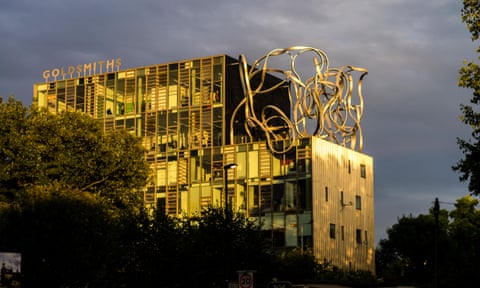
The Goldsmiths crisis: how cuts and culture wars sent universities into a death spiral
Arts education is essential – yet on both sides of the Atlantic, the humanities and critical thinking are under attack. With massive redundancies announced at this London institution, is it the canary in the coalmine?
I t is a couple of days before Easter, and the students who have been holding a sit-in in the Professor Stuart Hall building in Goldsmiths, University of London are packing up. The large basement smells of duvets and camping mats and solidarity and liveliness, and deodorant sprayed on in a hurry under a T-shirt, and it smells like a place where people have slept, which 20 of them have done since 20 February, with crowds swelling to 100 for spontaneous lectures.
This isn’t a story about idiot idealists making futile gestures: Mark Peacock, a 28-year-old postgraduate student in the politics department, rattles through a number of concessions the senior management team at the university has made as a result of the action. Yet Danna MacRae, 24, studying for an MA in ecology, culture and society, says the occupation has been greater than the sum of its demands: “It’s about opening up the literal physical space but also the social space to expand political possibilities. So much becomes possible when you’re living together 24/7.” I read their banner as they’re furling it up: among other things, it calls for the university to protect students’ right to protest, expand scholarships for Palestinian students and divest from any company providing equipment to Israel.
These are by no means extraordinary calls, particularly among students – many universities have coordinated protests and motions on Palestine. Besides, calling for an end to the bombardment and starvation of Gaza becomes a more mainstream position the longer it goes on. But I’m really surprised, because there’s a whole separate, hot dispute going on at Goldsmiths, and I’d assumed the students were protesting as part of that. The media are really bad at examining two issues at once, particularly if they’re on different scales and not obviously connected – more than one academic from the media and communications department explained this to me.
Midway through the occupation, the warden of Goldsmiths, Frances Corner, had announced the so-called Transformation Programme , which would require 132 members of staff – or the full-time equivalent, so it was expected to affect more than that number of people – to be made compulsorily redundant. It would mean losing 17% of the staff, with some departments – English and sociology, arguably their most famous, along with art and politics – taking hits of 50%.
It is no exaggeration to say that staff are devastated, gobsmacked. They had a hunch that something was about to happen but say that for days ahead of the announcement, Goldsmiths’ council, its governance body, wouldn’t meet them, putting them off until the day after it had approved the redundancies, the day academics got the letters. “They agreed, but we said: ‘We cannot meet you now because half of us are having a panic attack,’” says history of art lecturer Yaiza Hernández Velázquez.
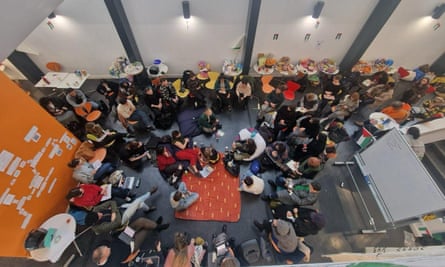
Many are at pains to admit that they know “the glory days of the 80s are no longer with us” (in the words of an academic from the English department, who asked to remain anonymous because they are at risk of redundancy). Many understand very well the financial pressures Goldsmiths is under, although they point out that they’ve already made many concessions to save money. “Voluntary redundancy schemes, vacancy rates and cutting down associate lecturer budgets and research budgets: with that, Goldsmiths had already recouped £10.1m. We didn’t really oppose any of that, because it was acknowledged there was a need,” Hernández Velázquez says.
But to make cuts like this, which are planned for this September, will surely change the face of the university, diminishing the educational offer that many students – certainly many undergraduates – signed up for, and curtailing much of the activity for which Goldsmiths is famous.
Apart from the fact Blur met there, Goldsmiths is known for a few things. It’s quite an anarchic, radical place. English students go there for the decolonisation, and students of sociology and art go there for the ecology course. Des Freedman, professor of media and communications (not at risk from the redundancy plans), summarises it more broadly as: “It specialises in the creative and the critical, so you would expect more musicians, more artists, more film-makers, more designers than in less specialist institutions, all of those with a critical perspective.” It has punched above its weight – being a small university of about 8,600 students, with a turnover of £135m versus a university average of £250m – both in terms of reputation and international pull. Since about a third of its students are international, more as postgraduates than undergrads, and since, as is well known, the fees foreign students pay go so very far towards keeping any tertiary education institution afloat, to strip out the unique elements that bring them here seems, in the first place, bizarre.
Corner is adamant: “Our financial position is really serious. We absolutely know what we’ve got to do. [These redundancies] sound like a lot, but part of the problem is that over the last five years we’ve lost a thousand students. In terms of the amount of money our staff bring in, only the London School of Tropical Medicine is lower than us. The number of students per member of staff is very low, and it’s not sustainable.”
Without question, some of this situation is unique to Goldsmiths and the decisions of Corner and her senior management team. The administrative staff were streamlined in the so-called recovery plan into one central hub in 2021-22, again to save money, and there has been chaos ever since. The details are quite funny, like watching W1A, but only if you are doing so from a gigantic distance. One of the reasons for the decline in international student recruitment was that “the letters went out too late”, says Hernández Velázquez. “The prospective students couldn’t get their visas. They can’t deny that, but what has been very frustrating is that they have never explained how many letters didn’t get sent. We were never told what the shortfall was. We were just told that people don’t want to come here any more.”
That is thought to have cost hundreds of international applications, though Corner rejects that, blaming “problems within departments”, along with spurious applications and a tightening of Home Office regulations, particularly recently around dependency visas for postgrads. That anti-immigrant sabre-rattling by the government has fallen harder on some universities than others. Chinese postgrads, for example, tend not to bring dependants, while Nigerians on average bring two and a half.
Yet in many ways, what’s happening at Goldsmiths is a vivid thumbnail sketch of the crises, both accidental and deliberately manufactured, hitting the entire sector, bar a very few stunningly well-funded universities from the high-profile Russell Group .
Specific to the so-called “classroom” subjects of the humanities – English, history, sociology – the financial model is falling apart. Would it amaze you to hear that the Tories and Lib Dems of 2010 did not think this through? When tuition fees were first hiked to nine grand a year by the coalition government, Andrew McGettigan, author of the Great University Gamble and expert in university funding and finance, says: “Suddenly classroom subjects were getting a lot more than the cost of delivering teaching, so you could fund research time in your department out of the money you were getting from your students.” You could also cross-subsidise more expensive subjects.
This led to what he calls “a great sucking sound” as larger, more prestigious institutions pulled in humanities students because they were very lucrative. This became even more pronounced when George Osborne abolished the cap on student numbers in the 2013 autumn budget. This led to a slow death spiral for smaller universities; their prestige came from being research universities, rather than just teaching universities, but they were having to drop their grade requirements to keep their numbers up. Prestige takes quite a long time to drain away, though (longer to rebuild, of course), so the situation bobbed along for a bit with a lot of research staff in the humanities who were basically paid for by undergraduates they didn’t teach.
But there was a much bigger problem coming: as tuition fees have stagnated, going up only by £250 in 14 years, even classroom subjects are now costing more than they bring in. So the only possible cross-subsidy is from foreign students, whose fees are unregulated and have no ceiling – some undergraduate courses at Oxford are £48,000 a year for overseas students. Oxbridge has more money than it knows what to do with, while smaller institutions just get by. But now enter – let’s call it, for brevity – the performative xenophobia of the new Conservative. Foreign students, considered until so recently an export success story (not just their fees but every meal deal they bought counted as a plus on the UK’s balance of payments), are now a number that Tory ministers vie with one another to reduce.
So when Corner blames the government (in tactful, passive terms: “That’s why arts and humanities have been undermined”), that is fair. When academics and students say they suspect her of trying to turn Goldsmiths into a “management and business teaching university”, as Peacock describes it, supplying technical and vocational education to students who pay through the nose and definitely don’t occupy lecture theatres, she would deny that in general terms: “I would say that that thing that makes Goldsmiths really special is the combination of humanities and social sciences.” But her core argument is that the sector is underfunded and the funding model is bust anyway, and she’s not wrong.
More sinister is the sense that Freedman describes: “It’s hard not to think that a culture war is being evoked against you simply for trying to think independently and critically.” Science minister Michelle Donelan’s recent shameful attack on two academics , reporting them to UKRI (the national research-funding body) for extremism and blighting their lives over an accusation that was wholly without foundation, springs to mind – but then so does almost everything Donelan and education secretary Gillian Keegan say about the sector in general, and humanities in particular. All those references to “woke ideology”, “intolerant woke bullies” and “cancel culture” are increasingly accompanied by defunding of the humanities , using increased accessibility to education as a fig leaf, as Keegan announced last week.
“Your subjects are mocked and called low value,” Freedman says. “Arts, humanities and social sciences haven’t played the instrumentalist game, so they’re seen as easy targets by tabloids, by GB News. We would laugh it off, but this is a huge asset to the British economy.” More importantly, he continues, “it’s not just a tragedy – it’s almost like a crime to shrink those spaces that provide a home for the inquisitive, the experimental. If the space disappears, it’s very hard to recreate it.”
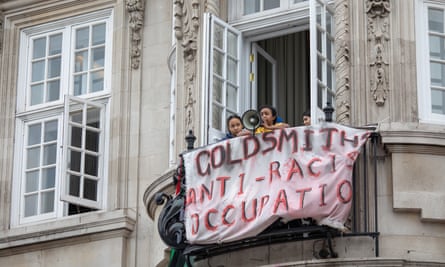
McGettigan perceives expedience here: universities are very independent, institutionally, and that’s a problem when the market starts to fail (and it is failing: a truly tragic sidebar is that it’s not working out for students either, and some universities are hitting 30% dropout rates after the first year. Maintenance grants haven’t kept pace with inflation, and students just can’t afford to stay). “Culture wars do distract from market failure,” he says, “and leave the impression that the market failure was a result of misplaced priorities.”
All that would definitely be bad – cynical, self-sabotaging, philistine. But there’s another possibility that is worse: that culture wars aren’t being fought to destroy the humanities – rather that humanities are being destroyed because they’re incredibly inconvenient to authoritarianism, representing as they do “a pedagogical practice that calls students beyond themselves, embraces the ethical imperative for them to care for others, embrace historical memory, work to dismantle structures of domination , and to become subjects rather than objects of history, politics, and power”.
That’s from Critical Pedagogy in the Age of Fascist Politics by the American academic Henry Giroux, and I mention it not to freak anyone out, merely to note how striking the similarities are between rhetorical and financial attacks on the arts and humanities in the US and in the UK. You can read about the crisis in the creative writing degree at the University of Florida and swap out only one or two words (“semester”, plus the name of the president) and you could be reading about Goldsmiths.
In fact, the students protesting about Gaza at Goldsmiths are also passionately opposed to the mass redundancies, and many of the staff were involved, non-residentially, with the occupation – teach-ins, coming to guest lectures, supportive vibes. But there’s a deeper connective logic, common to student protest throughout history. MacRae, when the occupation began, was working on a soundscape about the Tiananmen Square massacre, where her father had witnessed the occupation of the square and subsequent shootings of students and civilians. “Did they get what they wanted?” she says. “Of course not. But for a few months, the whole city was in a state of anarchy in a beautiful way, and people still remember that feeling.”
When you embark on an education that cannot obviously be commodified, that doesn’t translate into earnings, it is a way of saying (and believing) that your mind’s value to society is innate. Politics is your business because you are its business. You are the keeper of ideas, historical memory, compassion, context, hope, that the market cannot understand and authoritarianism cannot stomach.
Back in February, one (anonymous) academic was in a meeting at which some of the senior management team wanted to get the students arrested. “Can you imagine?” they said. “Calling the police on your own students? At Goldsmiths?” That was outvoted, but the ludicrousness hangs in the air.
Can you imagine? Trying to hollow out the arts and humanities? In the UK, where it’s one of the few things we’re good at? (No offence, scientists: you’re good too.) You don’t have to imagine it – you can see it. But I don’t think it’s a done deal.
- Goldsmiths, University of London
- University funding
- Universities
- Higher education
Most viewed

IMAGES
VIDEO
COMMENTS
As a Creative Writing Lecturer, ... View all Regent College London jobs - London jobs - Lecturer jobs in London; Salary Search: Senior Lecturer in Health and Social Care salaries in London; See popular questions & answers about Regent College London; 1; 2; 3; Return to Search Result
0224-073. Salary: £47,719 per annum - including London Allowance. This is the expected starting salary for this post however appointment at a higher point may be made for candidates who demonstrate exceptional skills and experience relevant to the role. Applications are invited for the post of Lecturer in Creative Writing in the English ...
Lecturer in Creative Writing. Department of English. Salary: £47,719 per annum - including London Allowance This is the expected starting salary for this post however appointment at a higher point may be made for candidates who demonstrate exceptional skills and experience relevant to the role. Full Time, Permanent.
The top companies hiring now for lecturer in creative writing jobs in United Kingdom are University College London, University of Surrey, University of Hull, University of Worcester, University of Leeds, City, University of London, Regent College London, University of Derby, University of Edinburgh, Birmingham City University
Senior Lecturer Salary: Grade 10 from £61,929 to £67,422 inclusive of London Weighting with potential to progress to £71,365 per annum, inclusive of London Weighting, through sustained exceptional contribution. Hours: 0.5 FTE. Contract Type: Fixed Term - 2 years. Brunel University London was established in 1966 and is a leading ...
An exciting opportunity for a Lecturer or Senior Lecturer to join the academic team at the prestigious Royal School of Needlework located at Hampton Court Palace, London Lecturer / Senior Lecturer - Experimental Hand Embroidery Practice - As Lecturer / Senior Lecturer, you will work closely with the Course Leader to contribute to the curriculum of the Hand Embroidery undergraduate programme ...
The appointed candidate will contribute to the delivery of undergraduate and postgraduate education appropriate to the position of Lecturer. The successful candidate will have a record of publications in the field and have experience teaching within the broad field of Creative Writing at both undergraduate and postgraduate levels and to students from diverse backgrounds.
Lecturer in Creative Writing (Teaching and Research), Queen Mary, University of London Deadline: Sun 26 Feb 2023 The Department of English in the School of English and Drama in Queen Mary's Faculty of Humanities and Social Sciences seeks to appoint a permanent part-time (0.5fte) Lecturer in Creative Writing.
24 Aug 2023. Current IT Support Technician in Birmingham, England, England. It is a door step to develop career and gain some cutting edge technologies. Search Lecturer in creative writing jobs. Get the right Lecturer in creative writing job with company ratings & salaries. 41 open jobs for Lecturer in creative writing.
Many of the creative writing staff are Fellows of the Royal Society of Literature. Their most recent publications are: Beethoven Variations: Poems on a Life (Chatto & Windus, 2020) Ruth Padel - Professor of Poetry; A Station on the Path to Somewhere Better (Scribner, 2018) Benjamin Wood - Senior Lecturer in Creative Writing
Applications are invited for the post of Lecturer in Creative Writing in the English Department at Royal Holloway to start in the Summer Term (from 29th April 2024). ... including London Allowance. This is the expected starting salary for this post however appointment at a higher point may be made for candidates who demonstrate exceptional ...
Taught by experienced poets and novelists, our Creative Writing and English Literature BA will increase your understanding of literature through the study of the historical and contemporary genres in national and international contexts. Publishing, the arts, education, communications and business sectors are just a few of the areas open to you ...
Give creative writing a try on this fun and supportive short course. Ideal if you want to express yourself but need help in getting started. Guided exercises will encourage you to experiment and unlock your imagination. Full fee £69.00 Senior fee £69.00 Concession £35.00. View all available dates.
Creative Writing Research PhD. The PhD in Creative Writing at King's is a practice-led course, incorporating taught elements and aspects of professional development. It is designed to cater for talented, committed writers who are looking to complete a book-length creative work for publication and sustain a long-term career in writing.
Creative Writing and English Literature moved into the School of Art, Architecture and Design in 2016/17, and we began collaborating with the tutors and students on the Design, Illustration and Publishing degrees. It was an inspiring process to see the critical and creative work of our students emerge in a shared project like the Anthology book.
This BA Creative Writing teaches you to write in fiction, poetry, drama, non-fiction and screenwriting. ... Birkbeck is located in the heart of literary London, in Bloomsbury, WC1. ... Teaching is varied and interactive and takes the form of lecturer-led sessions on elements of craft, workshopping of students' creative work, class and home ...
Our degree in creative writing explores the written word across a wide variety of forms and genres. As well as studying fiction and poetry, you'll produce work for stage and screen and for online media. With option modules, you can expand your studies to include a foreign language or specialise in particular fields of writing, such as journalism.
Dr Claire Griffiths's Research. Dr Griffiths is a practicing author of flash fiction, short and long-form fiction, and creative nonfiction. Her work has been published by established literary magazines, broadcast on BBC Radio 4, and placed in international competitions, including the Bridport Short Story Prize, the Bridport Flash Fiction Prize, and the SmokeLong Quarterly Flash Fiction Award.
This course is also offered as an intensive one-week summer school. On this introduction to creative writing online short course you will learn the key elements of fiction writing, particularly in relation to short stories and novels. Subjects covered include structure, characterisation, dialogue, point of view, narrative voice, style and how ...
Founder of Cocoa Girl magazine says children will also be taught creative writing, music and illustration Nyima Jobe Thu 4 Apr 2024 03.09 EDT First published on Thu 4 Apr 2024 01.00 EDT
I t is a couple of days before Easter, and the students who have been holding a sit-in in the Professor Stuart Hall building in Goldsmiths, University of London are packing up. The large basement ...